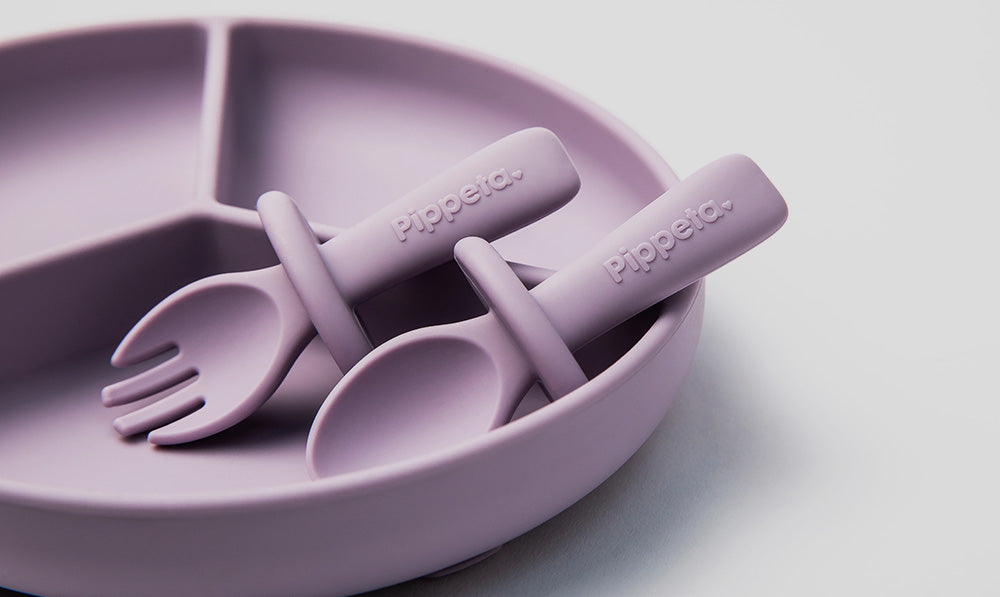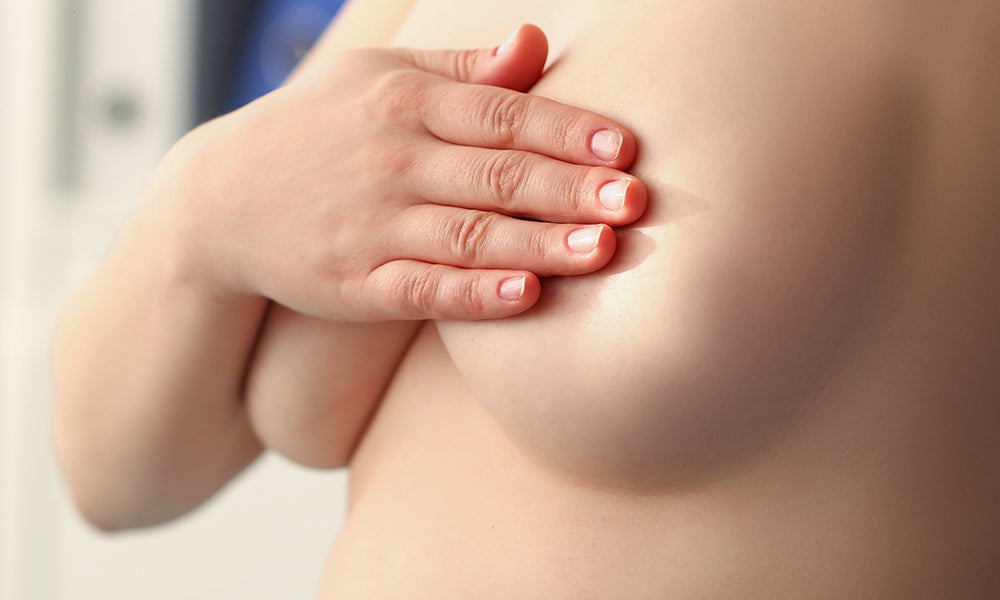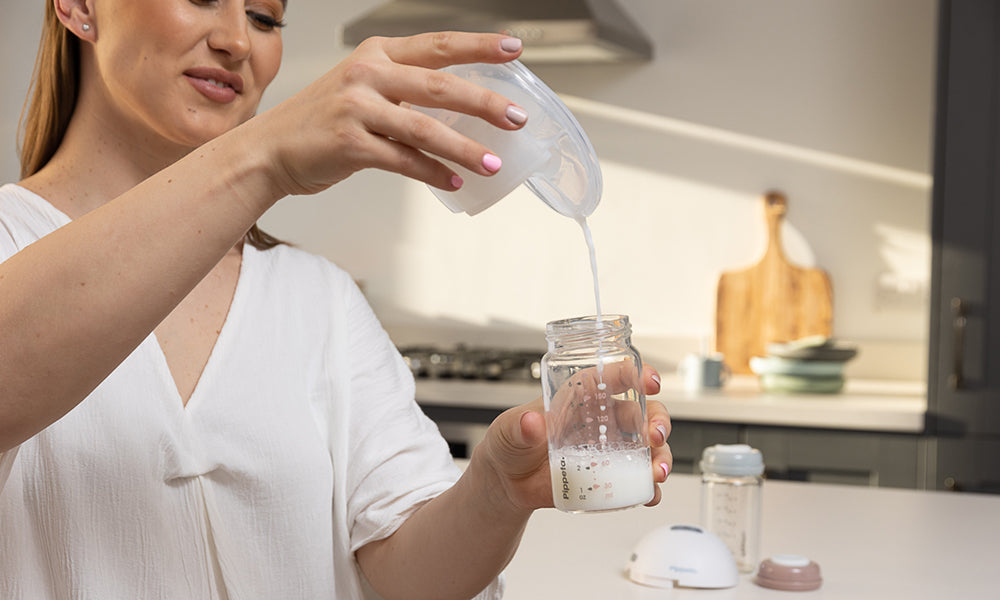
Weaning is the gradual process in which a baby who is at least 6 months old begins to slowly transition from a diet that has been solely breast milk or formula milk to a diet made up of mainly solid foods. This isn’t an overnight transition, it happens over a period of a few months whilst your baby's body learns to adjust to the introduction of solids.
That’s the scientific definition, but what it can really be described as is a fun, exciting, and very messy time in yours and your baby's life! It’s a great milestone to hit, and you and your baby will have a brilliant time trying new foods. You’ll likely find yourself snapping a few pictures of the downright hilarious faces your little one pulls as they experience their first tastes.

The recommended age for weaning to begin is when the baby reaches at least 6 months old. This ensures that your baby's digestive system has developed enough to handle solid foods.
Weaning before this age can increase the likelihood of digestive issues in later life, such as IBS and food intolerances.
The NHS suggest waiting until at least 6 months of age as your baby will likely be a lot more active; they may be sitting up, rolling or starting to crawl at this point, therefore they’ll be able to burn off the calories from solid foods and avoid excessive weight gain.
How Do I Know My Baby is Ready for Weaning?
From around 6 months of age your baby will start to show signs that they are ready to be introduced to solid foods. These signs include:
- Your baby has lost their tongue thrust reflex.
- Your baby can sit in an upright position unaided.
- Your baby can hold their head steady.
- Your baby can swallow solid foods without spitting it out.
- Your baby has begun to show good hand-eye coordination.
- Your baby becomes interested in what you’re eating.
- A sudden increase in wanting breast milk or formula milk is not an indication that your baby is ready to start the weaning process.

Different Weaning Methods: Baby-Led Weaning or Spoon Feeding
Introducing solid foods to your baby’s diet is an exciting milestone to reach, and paves the way for their future healthy eating habits. Whether your baby is currently breastfed or on infant formula, introducing solid foods should take on the same gradual process.
Note, you don’t need to stop breastfeeding your baby once they are fully weaned, many mothers choose to continue their breastfeeding journey up to and beyond their baby’s first birthday.
There are two well-known weaning methods; baby-led weaning and spoon feeding.
Baby-Led Weaning
Baby-led weaning is becoming a popular choice for parents to start the weaning process. It is the method of letting your baby feed themself finger foods whilst totally skipping the pureed stage of food where you would normally spoon feed them.

Spoon Feeding
The spoon feeding method is a more traditional weaning approach in which you spoon feed your baby pureed first foods. These foods usually begin with baby rice, fruit and vegetable purees, and then eventually moving onto protein based pureed food.
There are pros and cons to both methods, or you can even choose to combine the methods. There really is no wrong way to go about it. Just go with whatever you are comfortable with and what you think is best for you and your baby’s health.
Your Must Have Weaning Products
Preparation is key to a successful weaning journey, and we have everything you need right here from silicone tableware, to bibs.
Our sets are the perfect way to introduce cutlery into your children's dinner routine simply and safely. All of our weaning products have been made using the highest quality silicones that are both BPA-free and non-toxic.
All the materials that we use have been through stringent testing to ensure that they are fully safe. We are extremely proud to have recently been awarded our ‘Approved by Mini First Aid’ badge.
There are many different weaning accessories and weaning sets that can be extremely helpful during the weaning process. Our phenomenal range of award-winning sets and bundles have everything you need to make the transition as seamless and as stress-free as possible.
How To Start Weaning?
As we mentioned above, there are two well-known methods of weaning; baby-led weaning and spoon feeding, and the choice is totally up to you.
You are always going to have people giving you their opinions on which method of weaning they find to be the best. But take it as it is; their opinion.
You choose whatever method suits you and your baby, and also remember that you don’t need to be rigid with it, it’s a learning process for you both, and you want to make it an enjoyable experience so that they’re eager to taste a variety of foods and flavours.
Our Easy Weaning Guide
Be Prepared and Organised
There are many different baby weaning guides out there to give you initial guidance such as Ellas Kitchen, Emma’s Diary and Gina Ford. They’ll help you with what foods to introduce first, how to prepare the first foods and give you a good daily schedule or broader timeline on when to feed solid food and breast milk or formula.
You don’t need to stick to the schedules in the books though, just do what is natural for you and your baby, and don't worry about sticking to a rigid routine.
Make it Fun
Babies love to play and be entertained, and whilst you may not agree with playing with your food, your baby doesn’t quite yet understand correct dinner etiquette! They’re going to be naturally curious about this whole new experience, and yes, they’re going to make a lot of mess!
You can offer your baby different foods at once making an interesting pattern with the foods, or create a smiley face on their Pippeta plate, decorate their plates with an array of different colours alone will intrigue your baby and have their attention focused on the food.
Be Patient
Some days it wont go how you want it to. Your baby may turn their nose up at a certain food, they may not like the look of it or the smell. They may enjoy a food one day and simply chuck it onto the floor the next!
In the early days of weaning, don’t stress too much about whether your baby is going to be hungry by not getting enough food, as their diet is still going to be mainly on breastmilk or formula milk.
You’re never going to know what’s going through your baby’s mind, so it’s important to take each day as it comes; be patient and encouraging so that your baby will enjoy the adventure of weaning.
Don’t Stress
Squished up vegetables and tomato spaghetti being thrown about is nobody’s idea of a great time, except your baby’s! They’re going to delight in exploring their new senses and skills; picking the food up, feeling its different textures, and having their first tastes.
They’re going to squash the food in their hands, it’s going to go all over their little faces, and most of it may end up on your floor. It’s important to remember that this isn’t a quick process and your little one will eventually get to a point where they are able to eat like a relatively normal human being.
Offer Different Foods
The very first foods you should be introducing to your baby are vegetables; broccoli, cauliflower, carrots, parsnips, peas are all great choices for your baby’s first weaning foods! We recommended vegetables to ensure your baby doesn't get a sweet tooth straight away from fruits.
Of course, fruit plays a huge part in contributing to an overall healthy, balanced diet, and so fruits such as cut up or pureed apple, pears, bananas, strawberries, melon are brilliant to get their little taste buds going.
You’ll want to ensure you offer a variety of foods each day so that your baby gets used to eating a range of foods with different flavours and textures, and this will help to make sure they don’t start to favour just one certain food. Your baby will be joining in with family meals in no time at all!
Weaning risks you should be aware of
Even though introducing solid food to your baby is an exciting new stage of life, there will be some risks which you should be mindful of.
Gag Reflex or Choking During Weaning
Swallowing something other than breast milk or formula is going to be such a new and strange sensation for your baby, and their gag reflex may kick in. Usually this is nothing to be alarmed about, but it can be worrying as your natural instinct will be that they may be choking.
It’s good to educate yourself on this matter in the rare event that something more sinister does happen.
There are many baby first aid classes that you can attend, your health visitor may be able to recommend some around your area.
To avoid any choking incidents, always ensure that food is cut up into small pieces for baby-led weaning, or for spoon feeding in the first few weeks ensure the baby food is properly pureed.
Allergic Reactions When Weaning
Nuts are a common dangerous allergy that many people don’t know they have until they either get tested or have an adverse reaction. Given that they’re a hard food anyway may mean you avoid trying your baby with nuts in the first few years anyway, but it's wise to be mindful of foods that may contain them.
The NHS recommends that children under 5 do not be given whole nuts or peanuts as they’re a choking risk.
It’s advised to follow the ‘4 day rule’ when introducing commonly allergenic foods. Introduce your baby to a new food, every 4 days. This helps you to spot whether your baby has had any adverse reaction.
Common allergenic foods are:
- Nuts including Peanuts
- Whole cow’s milk
- Eggs
- Cereals containing gluten
- Fish and Shellfish
- Soy and Soy products
- Celery
- Mustard
- Sesame Seeds
Weaning with Pippeta
We are an award winning business of 2023 and we understand that the weaning process can be difficult. The best way to make it as easy as possible is to make dinner fun. That is why our range of weaning sets and weaning bundles has everything you need to add an element of fun back into dinner time.
We have everything you could need with our ‘My First Weaning Sets’. They are the perfect way to introduce cutlery into your children's dinner routine simply and safely. All of our weaning products have been made using the highest quality silicones that are both BPA-free and non-toxic.
All the materials that we use have been through stringent testing to ensure that they are completely safe. We are extremely proud to have recently been awarded our ‘Approved by Mini First Aid’ badge.
Along with this we provide free shipping on orders over £50, a 1-year warranty on breast pumps, a 14-day free returns policy and we are rated excellent by our customers.
















Leave a comment
This site is protected by hCaptcha and the hCaptcha Privacy Policy and Terms of Service apply.